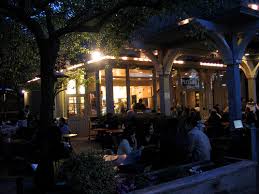
Ali the Graceworks Youth Minister at Christchurch did a presentation on Youthn ministry as par tof his Pioneer ministry course at St Militus (Graham Tomlin )
I want to reflect on 3 things I picked up on Liminality, Thrid places and a simple rule of life
LIMINALITY
Roxborough is the guru on Liminality. See for example The Sky Is Falling: Leaders Lost in Transition and also the Roxborough journal where I found the following:
the mathematician Benoit Mandelbrot famous for chaos theory, who generated the idea that when a butterfly flaps its winds in the middle of a South American rain forest it causes a storm over New York City. They were discussing how we typically imagine ourselves living in a managed, predictable world where repeated patterns of activity cause us to assume the patterns will continue on into the future. Their challenge this belief by stating that, in fact, small, unnoticed disturbances result in massive, unpredictable consequences in the most unexpected places.
Jonny Baker calls him A kindred spirit
I like the expression: 'Living with the impact of the improbable'. It is on the edge of chaos where the most creativity is to be found.
If you are interested it also worth looking at together in mission and their work on
Responding to a changing landscape gathering - learning - travelling

In their Youth strategy Graceworks focuses on 4 areas of
Leadership discipleship worship and mission
This is part of the mission-shaped church focus. They are looking at pushing the boundaries with a possible change of venue and time and video based teaching.
THIRD PLACES

The Great Good Place, Ray Oldenburg (1989, 1991)
“Most needed are those ‘third places’ which lend a public balance to the increased privatization of home life. Third places are nothing more than informal public gathering places. The phrase ‘third places’ derives from considering our homes to be the ‘first’ places in our lives, and our work places the ‘second.’”
Third places (home is 1st place, school work is 2nd) are the most significant places for Christian mission to occur because in a third place people are more relaxed more open to meaningful conversation and interaction.
Places where community can be built, where access is free, food is available accessible places within walking distance, gathering places which are comfortable and welcoming where friends are to be found.
BT had agreat quote about small rituals and 3rd places
'Third Places' are neither home nor workplace, but somewhere between. Places to meet, socialise, relax, hang out, work away from the office. Places to eat and drink without pressure to consume or move on. The 'third place' is epitomised by the modern coffee shop, with its sofas and newspapers - a revival of its 18th century role - or by the internet cafe.
That coffee shops should be third places more than bars, say, has to do with the beverages consumed. Stay in the bar all afternoon and you will get drunk. Stay in the coffee house and you will get things done. Of course it's not always that clear-cut. But for a place serving alcohol to function as a third place, its raison d'etre must not be the consumption of alcohol.
Of course, in many ways this is a new name for the role that cafes have long performed in Mediterranean life. But the 'third place' is not focussed on the act of eating and drinking in the fashion of traditional cafes, restaurants, bars and pubs. The food or drink one consumes is the entry fee, not the point. The 'third place' is a living room, but not in someone's house; a workplace, but not in someone's office.



Mission is incarnational it is about knowing 'God in Culture' The goodnews can only be proclaimed IN a culture not AT a culture. And 'coffee shops' are part of our culuture
Exploration of the use of the coffee shop space in Christchurch (Beacon) is under review. Is it possible to create a third space which is multi-user-friendly for young and old alike ? Starbucks sees to have done so.
Whatever he does Ali has my support. Gracework's Re-roote has been great for all of my kids.
I'll leave it at that and think about the Simple rule of life next time
6 comments:
Um yes and no depending on what you mean by yes, what you mean by no and what yyou mean by um....oh bother....
I am v interested in this area of thinking and love to hear about someon else interested ...
BUT
While I am no expert on this but:
surely Mandelbroth was famous for the mandelbrot set and fractels and stuff
AND
Chaos was first recognised by Henri Poincare.
"who generated the idea that when a butterfly flaps its winds in the middle of a South American rain forest it causes a storm over New York City."
UM not necessarily.... it depends what you mean etc
as I understand it - and I may be very wrong - chaos theory is in part about sensitivity to initial conditions and two identical systems which have so much as a butterfly wing flap of difference in their start points might result in very very different patterns emerging
That all connects to the work of LORENZ climate mathematician genius
"They were discussing how we typically imagine ourselves living in a managed, predictable world where repeated patterns of activity cause us to assume the patterns will continue on into the future."
- you mean like some foms of mandelbrot set??
I remain very attracted by the idea that seems connected to chaos theory that order and non-linearity are not exclusive.
In the "Lorenz attractor" a path roughly visits two attractors but the pattern and frequency with which those visits occur is non linear.
The up in and out thinking of framing church echoes this by saying we need to have these three
areas of focus in our church life - Up or worship - in or fellowship/buildingup the church fellowship and - out or mission/local outreach/service
One of the points of chaordic attractors it seems to me is that viwed from the rigth perspective seeming disorder can be seen to reflect a very beautiful order if this can be portrayed graphically people can connect intuitively to this sense of order. Withou some sens of the order within the chaordic pattern there can be a sense of madness and the common understanding of the term chaos.
But chaos os not disorder it is a kind of non-linear order which kind of brings me back full circle and hopefully gives a bit of shape to this top of my brain post.
Does Jesus work in this chaordic way? I love the idea that he might!
His response to individuals seems determined by the initial conditions ie the person and the circumstance. But on the other hand like the Lorenz attractor idea he is clearly visiting and revisiting a set of ideas at different times and in different orders. His ministry does not apprear to be all that linear and regular but it is not without shape, sense, direction.
The idea that he is listening to the father and speaking his words, and seeing what he is doing when linked to the metaphor of the Holy Spirit as wind can be connected to the [Lorenz] ideas of weather as chaordic patterns.
Maybe God who's way of working looks can seem like the wind.
Maybe God works to attractors and within from our point of view self set boundaries but does so in these non linear ways.
Complex pattaerns of inter-relating sysyems interacting withi each other can easily be seen to create apparently disordered patterns that we find uncomfortable. Jesus suggests that living according to his attractors will allow us to walk on these uncomfortable ways even if it does not always feel comfortable.
Faced by violent disorder and apparent breakdown some people retain the ability to calmly pursue their calling (attractor(s)) and live the difference that Jesus is and that reflects the God who just IS.
The monk should not strive, the abbott should not show favouritism, put not your trust in pricnes and riches oh and all shall be well, all manner of things shall be well.
It's the kingdom attractor baby!
...
er
maybe (cough)
..
Um,
....
I'll get me coat on the way out.
...
sorry bout that
I got a bit carried away there.
*click* door shuts
END
So the simple rule of life might be composed of attractors.
But this is part of a setting of initial conditions and the new community that emerges will be very highly influenced by that setting.
What stories are told and retold will guide the formation of the pattern that emerges from those attractors.
Hi Colin I've just seen these and will try to respond in due course But its late now and I need some beauty sleep or I'LL BE FLAPPING WINGS !
I'm intrigued by the comment that was removed !
Phil:-)
the post that follows the removed one is the same as the one that was removed but has typos corrected
Post a Comment